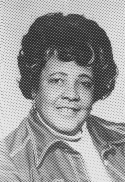Page 113
[Begin Tape 1, Side A]
Currie: Last time we talked, we had taken you to 1978, which was a pivotal year for you.
Payne: Yes.
Currie: That was the year that you—
Payne: A year of decision.
Currie: In more ways than one.
Payne: Yes. That was the year that my contract ran out with "Spectrum" after six years, CBS "Spectrum." So I had to make some decisions, because that was a nice chunk of income wiped out. What happened was that the producer that I had worked with for six years, Morrie Robinson, died from cancer, and he was sorely missed, because he was a very wonderful person to work with. So that meant, with his passing, a new managerial level took over, and, of course, they weren't attuned to me, nor was I to them. So it meant that they just had a whole change of line-up. That ended my association. I don't have any regrets, because it was six years of a very enjoyable experience, and I particularly liked it because it gave me a forum for presenting my views to a vast audience. I think even today, people come up and say, "Oh, we miss you. We miss you, because we enjoyed your opinion."
Currie: That was also the year that you had a parting of the ways with the Chicago Defender.
Payne: Yes. I made up my mind that the relationship, after 20 years, more than 20 years, we'd just come to a parting. It was a friendly, amicable parting. There was no bitterness. But I knew that I had to strike out for myself, and so I decided that I would move back to Washington. I didn't accomplish it until 1980, June of 1980, largely because I went on a Ford Foundation fellowship. I went on a Ford Foundation fellowship to do a study of America's black colleges, so that took up a good 18 months or more. So that was what I was doing in the interim.
Currie: How did you go about deciding to make a living after that?
Payne: Well, I knew the Washington scene very well, and I could continue to write about that, what was happening in Washington. It just seemed a natural base for me, anyway, because even when I went back to Chicago earlier, I found myself constantly flying in and out of Washington, because whenever there was a major news story, I wanted to be on the scene, so I spent a great deal of time going back and forth. I knew the Washington scene. I had known it since 1953. So it was a natural thing for me to move back to Washington, and it worked out, because I soon set up my own

